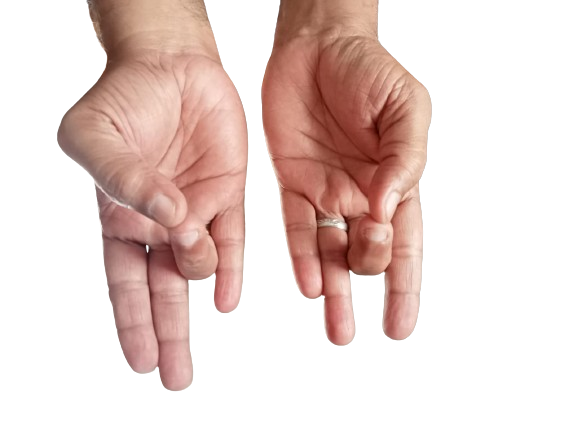The idea of creating this post was born when I mentioned ‘people pleaser’ while translating my Tamil post on Throat Chakra. (Check the post on Throat Chakra here)
Most of us would have been people pleasers on many occasions in our lives. Let us see if it is fine to be a people pleaser and if you are a people pleaser.
Fine, who is a people pleaser?
People pleasers are those who go out of their way to keep those around them happy. Well, it may seem a great trait to possess but wait till you hear the rest. People pleasers seldom express themselves for fear of hurting others or making others unhappy. All these don’t mean that they self-sacrifice or they show excessive compassion towards others.
Table of Contents
Why People Pleasers Are People Pleasers?
Let us get this straight. We don’t mean that all people pleasers are pretenders. There are a few underlying factors for them to be people pleasers. But before we go into that, let us see the reasons they give for their people pleasing activities.
- I don’t contradict others as I hate to offend others.
- It is perfectly right to sacrifice one’s interests for others and hence I do the same.
- It gives me pleasure when I oblige others.
However, the basis for all these reasons is their intention to be good to others, particularly, to make others consider them to be good; more particularly, they don’t want others to think ill of them.
One of the unwritten rules that we are asked to abide by ever since we were a child is to not hurt others. While it is perfectly right not to hurt others, it is just the opposite to over-stretch to please others by not expressing your true feelings. You may believe that others’ preferences were your top priority but deep inside it is how you want to be seen by others that matters the most. The bottom line is, knowingly or unknowingly, it is your image that you project.
Very few have a natural tendency to be helpful to others. However, their straight forward approach is a clear indication they are not people pleasers and that it is in them to be helpful. These types of personalities never do anything to satisfy others; but they are supportive when someone is in need.
Reasons behind people pleasing include:
1) Strong desire to be recognized
One of the most important reasons for people pleasing is the compelling desire to be recognized. If you wish to have others consider you as a person with immense patience, what you would do? You will display endless patience in front of them; if you wish others to consider you a good listener, you would naturally postpone all your work to give them time when they approach you for a talk. If you desire for yourself the image of a person that puts others before self, you will always do so. In all the above-mentioned situations, you stand to lose your sense of identity and purpose. Just to be considered a patient person, you never display anger even for the right reasons. To be considered a great listener you postpone your work and that indicates you don’t respect your time. If you value your work, you will not postpone it. Those who seek others’ recognition have low self-esteem. When one people pleases others, their self-esteem sinks further low.
2) Feeling of insecurity
Yet another important reason to people please others is the feeling of insecurity. Fear of isolation causes insecure feeling leading to people pleasing. In most cases, those who had a childhood that lacked parents’ affection and attention and those who were constantly criticized for every action of theirs during their childhood will develop an insecure feeling; to be loved and to not be targeted by criticism, such children start with people pleasing their parents. Naturally, they start people pleasing those around them as they grow. This leads to dependency as well.
3) Trying to fake a cordial atmosphere
This is one of the most common reasons for people pleasing. To maintain cordial relationship with those around, people pleasers tend to avoid sharing their honest views and accept others’ views though they disagree at heart. They fear rejection and also are mighty scared that their views may face criticism; hence, instead of going for healthy discussion to share their views, they tend to accept others’ views believing that it will help to keep the atmosphere cordial. However, such approach produces exactly the opposite results. These people pleasers find it impossible to accept reality; they also get stressed and suffer from low levels of self-esteem. They will also be considered by others as lacking clarity of thought.
4) Seeking validation
This is one of the most common traits in people pleasers. They are very particular about how others value them. Those with self-esteem and confidence will not seek external validation. For people pleasers, others’ validation makes their day. They also tend to value themselves based on how dependable others are on their support in any form. Hence, people pleasing comes naturally to them. Such persons get depressed when a situation arises that shatters their image. They would get desperate to find ways to give life to their portrayed image.
5) It is a natural trait, period.
Very, very few persons naturally possess the trait to satisfy others. They cannot bear to hurt others. However, such persons never attempt to show themselves in a good light; neither do they care what others think of them. If a few good words and acknowledgement of some sort would make others happy, they will be happy to oblige. Though they engage in such people pleasing activities, it is only because it is natural to them. Such persons never speak behind a person whom they people please.
Effects of People Pleasing
என்ன காரணமாக இருந்தால் என்ன, அடுத்தவர்களைத் திருப்திப்படுத்தத்தானே செய்கிறோம், இதில் என்ன தவறு இருக்கிறது என்று நீங்கள் நினைத்தால், கண்டிப்பாக இந்தக் கட்டுரையைத் தொடர்ந்து படிக்க வேண்டும் – என்னைத் திருப்திப்படுத்த அல்ல.
Before we proceed, let us consider for a moment the major difference between people pleasing and generosity. Generous persons share with others and help others without compromising on their identity and self-esteem. On the contrary, people pleasers, stoop low to gain validation from others.
The outcome, though, will be exactly the opposite. Assuming you are approached for some advice and instead of coming out with honest views, you come up with suggestions that would please them, you will not be recognized as someone approachable for critical constructive views.
Constantly working at people pleasing others will, in course of time, make you feel empty; your attitude and approach will seem lacking meaning and purpose.
Apart from all the above-mentioned effects, people pleasing can cause mental stress as people pleasers suppress their true emotions in the process of pleasing others; this, over time, will lead to becoming frustrated with the situation that caused to people please and naturally will turn into anger towards the very person they attempted to people please. What can be even worse is, this frustration and anger are again suppressed leading to further stress.
To put it simply, the effects of being a people pleaser include:
- Low self-esteem
- Lack of self-confidence
- No self-identity
- Stress
- Frustration – when constant efforts at people pleasing fail to produce the expected results, frustration sets in.
The ill-effects of people pleasing on physical health can hardly be ignored. In repeated attempts to people please others, you tend to speak and act in ways contrary to your honest beliefs and this leads to stress. Stress can heavily affect the function of liver, leading to kidney and heart disorders.
Are You a People Pleaser?
How to know if you are a people pleaser? Here are some signs to look for:
1) Saying “No” is a no-no for you
2) You desire to be liked by others though you will not display such desire.
3) Validation from others is important to you.
4) You will fake cordial relationship with others.
5) Coming out with honest views is difficult for you; you will also avoid sharing your thoughts on any topic.
6) You will not let people know when your emotions take a beating thanks to them.
7) The tendency to behave like those around to avoid rejection is present.
8) You can never bear to have others feel dissatisfied with you. You will spare no efforts to get back into their good books.
9) Sitting down to sort out differences is not easy for you; you would rather keep silent hoping the issue would resolve itself.
10) You believe it is on you to keep those around you happy. Hence, to avoid hurting them you rarely speak out your mind.
11) You have low levels of self-confidence and self-esteem.
12) Uttering ‘sorry’ is almost your second nature – even for mistakes you never committed.
13) You feel resentful when your efforts go unrecognized.
14) You never set boundaries.
Is it Still Fine to be a People Pleaser?
Despite the ill effects of people pleasing, if you still prefer to be a people pleaser or if you find it difficult to come out of people pleasing, here is more for you:
உங்களைச் சுற்றி உள்ளவர்களை people-pleasing செய்யும் தொடர் முயற்சிகளில் நீங்கள் இழப்பது உங்கள் தன்மதிப்பையும் தன்னம்பிக்கையையும் மட்டுமல்ல, ஒருவரை திருப்தி செய்யும் முயற்சியில் இன்னொருவரை கண்டிப்பாக பாதிக்கத்தான் செய்வீர்கள். அந்த இன்னொருவர் பெரும்பாலும் உங்களுக்கு மிக நெருங்கியவர்களாக இருக்கவும் வாய்ப்புண்டு. நம் குடும்ப உறுப்பினர்கள் மற்றும் நமக்கு நெருக்கமானவர்கள் எப்பொழுதும் நம் மீது அன்பு செலுத்துவார்கள் என்ற நம்பிக்கையால் அவர்களின் விருப்பங்கள் மற்றும் உணர்வுகளைத் தாண்டி வேறு சிலரைத் திருப்திப்படுத்தும் முயற்சியில் ஈடுபடுவீர்கள். இதனால், நீங்கள் கூடுதலாக இழக்கப்போவது உங்களுக்கு நெருக்கமானவர்களின், உங்கள் மீது உண்மையான பாசம் கொண்டவர்களின் நம்பிக்கையைத்தான்.
எப்பொழுதும் எல்லாருக்கும் நல்லவர்களாக யாராலும் இருக்க முடியாது. அப்படி இருக்க முயற்சி செய்பவர்களால் கண்டிப்பாக நேர்மையாக, வெளிப்படையாக பேசவோ பழகவோ முடியாது. ஆக, அனைவரையும் திருப்திப்படுத்தும் நோக்கில் நீங்கள் செய்து கொள்ளும் சமரசங்களும் சொல்லக் கூடிய உண்மைக்குப் புறம்பானவைகளும் அவர்களையே பாதிக்கும்; அதனால் உங்கள் உறவும் பாதிக்கும். எளிமையாகச் சொல்வதானால், people pleaser-ஆக இருக்காதீர்கள்.
How to Stop Being a People Pleaser
Here are some tips for you to get started:
1) Learn to say “No”
இதுதான் சரியான ஆரம்பமாக இருக்கும். பிறர் கேட்கும் உதவியின் முக்கியத்துவத்திற்கேற்ப செயல்படுங்கள். எல்லாவற்றிற்கும் ‘சரி’ என்று சொல்லாதீர்கள். உங்களுக்கான எல்லைகளை வரையறுத்துக் கொள்ளுங்கள். அடுத்தவர் கேட்கும் உதவி அவசியமானதா, சரியானதா, அதற்கான நேரம் உங்களுக்கு இருக்கிறதா என்பதையெல்லாம் கவனத்தில் கொண்டு பதில் அளியுங்கள். மறுப்பது என்பது பிறரை ஒதுக்குவது என்று அர்த்தம் கொள்ள வேண்டாம். People pleasing-கிற்காக செய்யாமல் தேவையை ஒட்டி செய்வதே உண்மையான உதவி. மறுக்க வேண்டிய சூழல் வரும்போது அடுத்தவர் மனம் புண்படாமல் மறுக்கவும் – அவ்வாறு மறுப்பது people pleasing ஆகாது. அதே நேரத்தில் நீங்கள் அவர்களை மறுப்பது கூடாது. வாழ்க்கையின் அடிநாதமே நாம் சமூகத்துடன் வைத்திருக்கும் உறவுதான்.
2) Express Yourself Honestly
- If you don’t share the same views as the other person you are discussing with, give words to your thoughts.
- Be honest with expressing the emotions you feel when you are listening. Don’t act surprised to please others if you don’t feel surprised by what others say. Avoid displaying any expression you don’t feel when you are shared with some information…just like displaying unfelt compassion, consideration and anger to people please others.
3) Don’t View Yourself Through the Eyes of Others
You are what you are and not how others see you are. Your ideas and interests can take different forms for improvising but never ever camouflage your views and emotions to satisfy others. If your ideas and feelings take different forms just to satisfy others, it won’t be long before you lose your self-identity.
Sharing others’ happiness and being with them when times are tough is humanity. While it is absolutely incorrect to be a people pleaser, it is even worse to stay isolated as life without healthy social relationships can cause stress, depression, lack of confidence and low levels of self-esteem. Maintaining healthy social relationships is essential not only for every individual’s overall health but also essential for the overall health of the society.
While you learn to say “No”, also ensure you respect others’ feelings.
While setting boundaries, ensure you surround yourself with love and spread love. Boundaries are set so you can live your life the way it is right for you but not to stay away from the society.
Every individual’s life is beautiful and meaningful. Everyone has the right to lead a contented life enjoying it to the fullest. By being people pleasers, one can neither lead an honest life nor enjoy the essence of life; neither can they make others happy. People pleasing will keep others away from you; on the contrary, honest approach to life and people around will make your life happy and fulfilling; it will also help you to build healthy social relationships. After all, as the Greek philosopher Aristotle stated, man is a social animal.

Rama Thamizharasu
Welcome to yogaaatral. I am a yoga therapist, SEO consultant, writer and translator. If you love pets, we invite you to visit our pet blog @ https://voiceofapet.blogspot.com/ and our YouTube Channel http://www.youtube.com/@PetsDiaryandMomsToo








